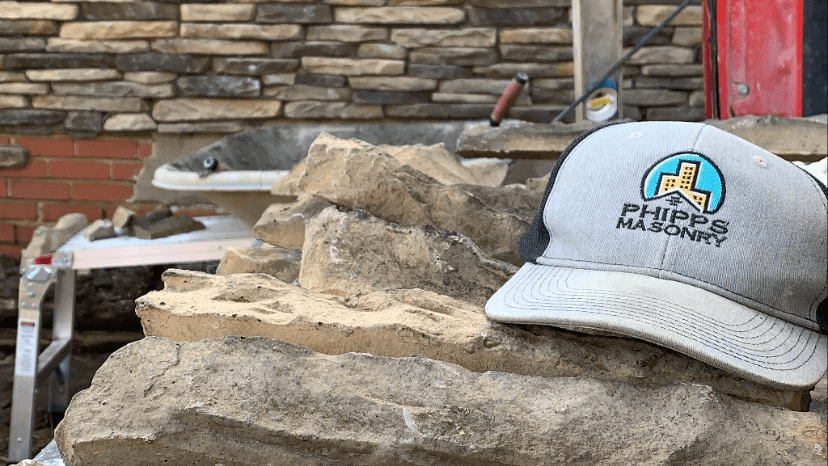Frequently Asked Questions About Masonry Services
Hiring anyone for a masonry project can be a big investment, and asking the right questions are vital to ensure you receive top quality masonry services. Here are the most commonly asked questions to make sure you have all the information you need before hiring masonry contractors!
Masonry refers to construction using materials like bricks, stones, and concrete blocks. Over time, masonry can deteriorate due to a variety of factors, including age, weathering, structural movement, and deferred maintenance. Here are some signs that may indicate that your masonry needs to be repaired:
1. Cracks: Cracks in masonry can be a sign of structural issues or water damage. If the cracks are wider than 1/8 inch, it's best to have them inspected by a professional.
2. Efflorescence: Efflorescence is the white powdery substance that appears on masonry surfaces due to water absorption. It can be a sign of moisture infiltration and can cause masonry to deteriorate over time.
3. Leaks: Water leaks can damage masonry over time. Look for signs of water infiltration, such as stains on walls or ceilings, mold growth, or a musty odor.
4. Loose or missing mortar: Mortar holds masonry materials together, and if it's missing or loose, it can compromise the integrity of the structure.
5. Bulging or leaning walls: If a masonry wall is bulging or leaning, it may be a sign of structural damage that needs to be addressed.
6. Crumbling or missing bricks or stones: If individual bricks or stones are crumbling or missing, it can weaken the overall structure and cause rapid deterioration to the surrounding areas.
If you notice any of these signs, it's best to have a professional masonry contractor inspect your masonry to determine the extent of the damage and the best course of action to repair it.
Tuck-pointing is a process for repairing mortar joints that have been weakened. When mortar begins to deteriorate, it stops repelling moisture, which allows moisture to soak into the surrounding brick or stone. This allows mold and mildew to grow, which can cause rotting. Additionally, the typical expansion and contraction that occurs with masonry with temperature fluctuations is exacerbated when extra moisture is trapped, which causes further damage.
During the tuck-pointing process, the old mortar is removed and carefully replaced. This process is extremely technical and requires a high level of expertise and precision. Our tuck-point specialists in Chicago are highly experienced and can provide the accuracy you need for the best results.
Fixing cracked bricks is a common repair in masonry work, and the process for repairing them can vary depending on the severity of the crack. Here's a general process for fixing cracked bricks:
1. Identify the cause of the crack: Before repairing the crack, it's important to identify the root cause of the issue, whether it's due to age, weathering, or structural movement.
2. Clean the area: Clean the area around the crack to remove any debris or loose mortar.
3. Prepare the mortar: Mix a batch of mortar that matches the existing mortar in color and texture.
4. Apply the mortar: Apply a layer of mortar to the crack, filling it completely.
5. Tool the mortar: Use a trowel or jointing tool to smooth out the mortar and blend it with the surrounding bricks.
6. Let the mortar dry: Allow the mortar to dry for 24-48 hours.
7. Finish the repair: If necessary, apply a coat of sealant to protect the repair from water and weathering.
It's important to note that if the crack is severe, it may require more extensive repairs, such as removing and replacing the damaged brick. It's best to consult a professional masonry contractor to determine the best course of action for your specific repair needs
It is difficult to determine whether your stucco needs to be repaired or replaced without a professional evaluation. However, there are several signs that may indicate a problem with your stucco, such as cracks, water damage, mold, mildew, or improper installation. If you notice any of these issues, it's important to have a professional stucco contractor evaluate the condition of your stucco. They can provide expert advice on the best course of action based on the specific situation. In general, minor cracks or damage may be repairable, while more extensive damage or stucco that is more than 20-30 years old may require replacement. A professional masonry contractor can help determine the best course of action for your stucco needs.
The price for a repair will depend on the extent of the damage and the size of the area that needs to be repaired. Here are some factors that can affect the price of the project:
Extent of the damage: If the damage is minor, such as a few small cracks or chips, the price to repair may be lower than if there are larger cracks or damage that affects the structural integrity of the building.
Size of the area: The price will also depend on the size of the area that needs to be repaired.
Accessibility: If the area that needs to be repaired is difficult to access, such as on a high wall or in a hard-to-reach area, the price may be higher.
Type of material: Some material may be more labor intensive to work with or outright more costly than others.
Labor costs: The cost of labor can also affect the overall cost of the project. Labor costs can vary depending on the contractor you choose and their level of experience, craftsmanship, and service. It's important to get a professional estimate before beginning any repairs. Our trained personnel can evaluate the extent of the damage and provide an accurate estimate of the cost to repair.
Pressure washing can potentially hurt brick if it is not done properly or with the right equipment. While brick is a durable material, it can be damaged by the high-pressure water stream from a pressure washer if the pressure is too high or if the nozzle is too close to the surface of the brick. When it comes to historical masonry restoration, cleaning by hand with soft brushes is the best approach.
If the pressure is too high or if the nozzle is too close to the brick, it can cause the surface of the brick to become pitted, etched or otherwise damaged. This can lead to a weakened brick structure and potentially lead to further damage over time.
However, if done correctly, pressure washing can be an effective way to clean certain bricks without causing damage. It's important to use the right pressure setting and nozzle, as well as to avoid aiming the pressure washer directly at the mortar between the bricks, as this can cause the mortar to become loose or damaged.
Mortar is a crucial component in masonry construction, as it helps hold bricks, stones, and other masonry units together. If mortar is crumbling, it's a sign of deterioration, which can lead to structural issues if left unchecked. Here are some common reasons why mortar can crumble:
1. Age and weathering: Over time, exposure to the elements can cause mortar to weaken and deteriorate. This is a natural process, and it can be exacerbated by harsh weather conditions or poor maintenance.
2. Moisture: Moisture can cause mortar to deteriorate, especially if the masonry is located in an area with high levels of humidity or frequent rain. Moisture can cause the mortar to soften and become more susceptible to crumbling.
3. Poor workmanship: If the mortar was not mixed properly or was not applied correctly, it can lead to weak and crumbling mortar.
4. Chemical damage: Over exposure to certain chemicals, such as acids, can damage mortar and cause it to crumble.
5. Structural movement: If the masonry structure experiences movement, such as settling or shifting, it can cause the mortar to crack and crumble.
If you notice that your mortar is crumbling, it's important to address the issue as soon as possible to prevent further deterioration and potential structural issues. Depending on the cause of the problem, the solution may involve repointing, which involves removing the damaged mortar and replacing it with new mortar.
When repairing damaged areas, we try our best to find a perfect match to the bricks that already exist on your home. There are certain bricks that are very common, and are still in use today. Unfortunately, many bricks go out of style, and manufacturers stop making them. In these cases, we try our best to find the best match, keeping shape, size, colour, and texture in mind.


